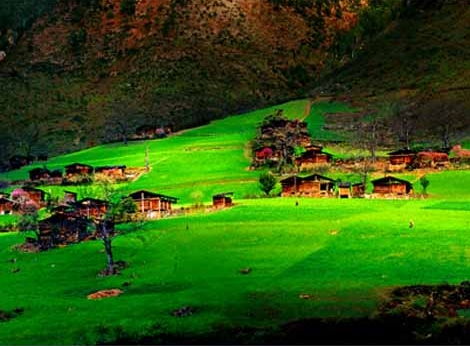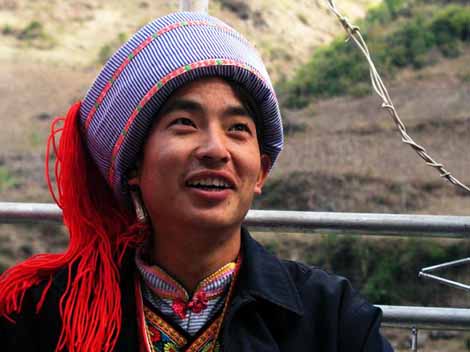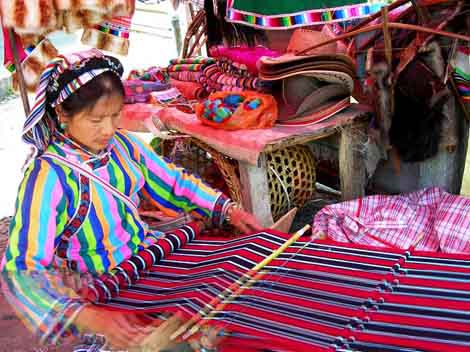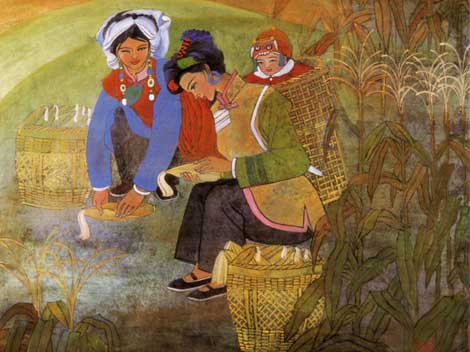Population and Distribution:
The Nu ethnic minority mainly live in the Bijiang, Fugong and Gongshan counties of the southwest of Yunnan Province, with some in the Lanping and Weixi counties. In comparison to the other ethnic groups in China, the Nu population is relatively small - there are just 28,759 of them according to the census taken in 2000.

Language and Character:
The Nu language belongs to the Tibetan-Burman sub-group of the Sino-Tibetan language family. The dialects within the Nu language, however differ so much that Nu people from different regions cannot communicate with each other. The language has no written characters, so most can read and write in Chinese.

Belief:
The religious beliefs of the Nu people remain primitive and animistic, believing everything has spirits and admiring the power of nature. Some of them believe in Lamaism and Christianity.

Food and Food Culture:
The Nu people usually have two meals a day. Their staple food is corn, supplemented with livestock and wild prey like fish, mossback, boar, and deer. They all enjoy drinking wine and guests are always treated with palatable wines. If the hosts consider their guests especially good friends, they may be invited to drink 'Tongxin (meaning with one heart) Wine'.

Clothes:
Nu people tend to wear flax clothes. The men like to hang knives from their waists and arrow bags on their backs; women wear skirts with beautiful chiffons as well as decorations of coral, shell, agate and pearl. Women learn to weave woolen socks in their childhood and when they grow up, they give them to their lovers as gifts. The boy's acceptance shows he loves the girl and the refusal shows his rejection.
Custom:
The Nu ethnic minority people are naturally skilled at playing musical instruments, especially the 'Dabian,' an instrument that resembles the Chinese pipa and the 'Nili', a kind of string instrument. When a young Nu man wants to woo a girl, he must play either of those two and the girl will reply while also playing. Through this way, they express their thoughts about work and life till they decide to become lovers. It is said that during this period, some of Nu couples actually speak very few words to each other.
Festivals:
The Nu people celebrate festivals like New Year's Day, the Flower Festival and festivals for worshiping the god of grain and the god of the forest. On the first day of the lunar New Year, the Nu families prepare rich dishes early in the morning. Instead of eating these meals themselves, however, they feed the meal to oxen who are obviously very grateful for the treat. After that, they begin to invite friends to enjoy dinners together. During the Flower Festival, the fifteenth day of the third lunar month, they take corn, flowers, and objects of sacrifice to stalactite caves. Here they worship their ancestors, pick water falling from stalactites which they call 'fairy milk' and pour the water onto the fields for a good harvest or into wine for good health.





